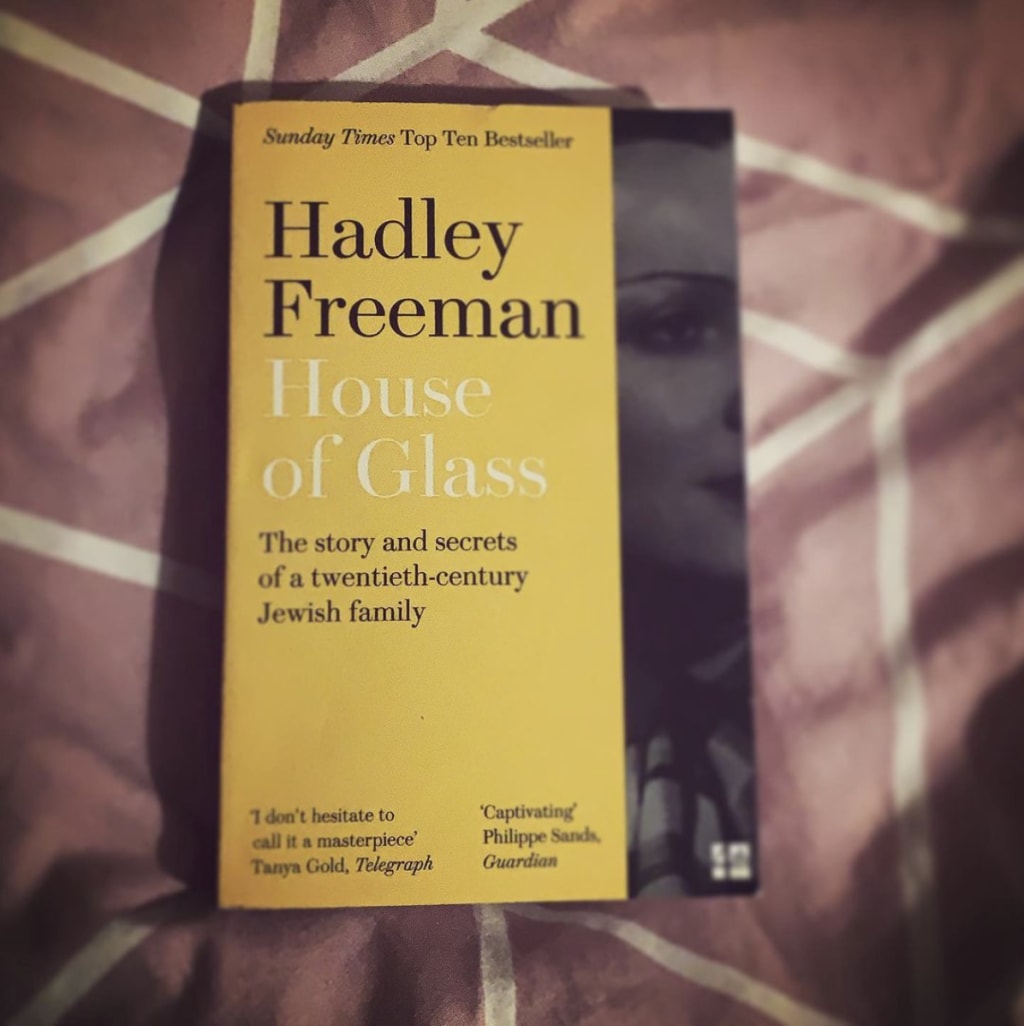Book Review: "House of Glass" by Hadley Freeman
5/5 - The untold saga of the ostracised...

For years, people have been ostracised because of various reasons and now, Hadley Freeman has told the story of ostracisation within a community of the 20th century that hindered all kinds of developments, which covers a family saga of cultural styles from the early 1900s all the way through to the present day and which tells us the story of many people who came to terms with who they were but ultimately had to change.
Hadley Freeman has written for the Guardian, for Vogue and for other publications. She has written numerous books including this one on the identity of Jewish People: "House of Glass". She has also struggled with her own inner-demons and I believe that she, out of many journalists, is one of the closest things to human that you will ever find. I have only recently finished "House of Glass" and honestly, I cannot tell you how deeply moved I am not just by the history, but the narrative, the characters, the changes and the way in which ostracisation of identity is still frequent in our own modern (and apparently, progressive) society. It is not as progressive as we think it is.
Hadley Freeman starts by covering the early 20th century and its pitfalls when it comes to acceptance in the European world, especially Eastern European. The language to do with the family is absolutely heart-wrenching. The fact that the father was selling sewing machines and that the war came around, he left the mother with her children who were all too young but the eldest boy took charge of the household. When the father arrived back from war, all his children were older, their money was practically gone, they were ostracised for their culture, the father himself was very sick and his job no longer brought in a wage that afforded food for the family.
Within this very first chapter, we get the sight of a family in absolute turmoil simply trying to survive and when the father figure passes away, there is a migration all over Europe of the family. However, the attitudes of others towards their identity does not change. When we get to the Second World War, we see how things can go from bad to worse and how the requirement to change identity was more in need than ever. However, the fact that is was required to survive does not mean that it was wanted by those who had to change. There was simply no alternative except death.
Whilst I was reading this, the book offered me these new ideas about how one can never really shake the feeling of growing up on the outside of others. As an Indian born and raised in Britain, I understand and relate to this - always growing up on the outside. The book is written not to make you just feel the way in which people grew up in this time and place with the Jewish identity, but also how people lived outside society. The social status of them was once stable, then unstable and has been since, unstable. This is no fault of their own, but the fault of others who refuse to receive them.
In conclusion, I believe that this book, throughout the period of time that it has covered, shows us a bit of ourselves that we need to address and that the result of even subconscious bias can be detrimental to a minority group of people. Written with wisdom, movement and timelessness, this book has the ability to pick us up and put us in another time and place resonating deeply with one of my favourite books ever - Henry Roth’s “Call it Sleep”.
About the Creator
Annie Kapur
200K+ Reads on Vocal.
English Lecturer
🎓Literature & Writing (B.A)
🎓Film & Writing (M.A)
🎓Secondary English Education (PgDipEd) (QTS)
📍Birmingham, UK






Comments
There are no comments for this story
Be the first to respond and start the conversation.